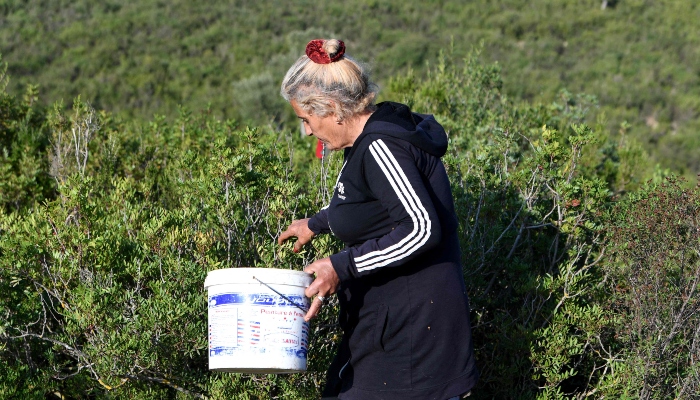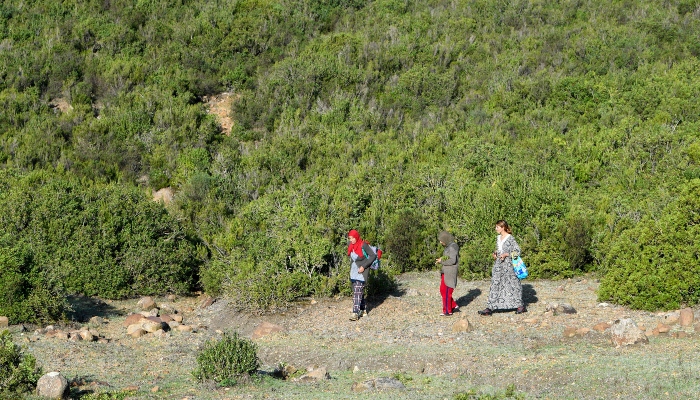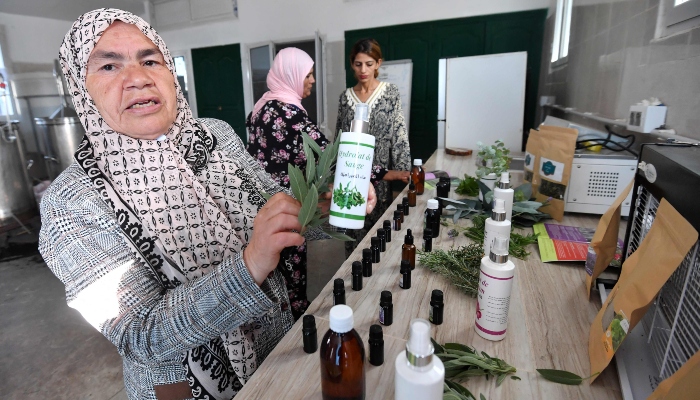Tunisia girls herb harvesters fight with drought, warmth

On a hillside in Tunisia’s northwestern highlands, girls scour a sun-scorched box for the wild herbs they depend on for his or her livelihoods, however droughts and emerging temperatures are making it ever more difficult to search out the valuable crops.
But the harvesters say they’ve little selection however to fight on, as there are few alternatives in a rustic hit onerous by way of unemployment, inflation and prime dwelling prices.
“There’s a massive distinction between the placement prior to now and what we live now,” stated Mabrouka Athimni, who heads a neighborhood collective of ladies herb harvesters named “Al Baraka” (“Blessing”).
“We’re incomes part, now and again only a 3rd, of what we used to.”
Tunisia produces round 10,000 tonnes of fragrant and medicinal herbs each and every 12 months, consistent with reputable figures.
Rosemary accounts for greater than 40% of very important oil exports, principally destined for French and American markets.

For the previous twenty years, Athimni’s collective has supported a large number of households in Tbainia, a village close to the town of Ain Draham in a area with a lot upper poverty charges than the nationwide reasonable.
Ladies, who make up round 70% of the rural staff, are the principle breadwinners for his or her families in Tbainia.
‘Yield much less’
Tunisia is in its 6th 12 months of drought and has observed its water reserves dwindle, as temperatures have soared previous 50 levels Celsius (122 levels Fahrenheit) in some spaces all over the summer time.
The rustic has 36 dams, most commonly within the northwest, however they’re recently simply 20% complete — a file low in contemporary many years.
The Tbainia girls stated they typically harvested crops like eucalyptus, rosemary and mastic year-round, however shrinking water sources and uncommon rainfall have siphoned oil output.

“The mountain springs are drying up, and with out snow or rain to fill up them, the herbs yield much less oil,” stated Athimni.
Mongia Soudani, a 58-year-old harvester and mom of 3, stated her paintings was once her family’s simplest source of revenue. She joined the collective 5 years in the past.
“We used to collect 3 or 4 huge sacks of herbs in line with harvest,” she stated. “Now, we’re fortunate to fill only one.”
Forests in Tunisia quilt 1.25 million hectares, about 10% of them within the northwestern area.
Wildfires fuelled by way of drought and emerging temperatures have ravaged those woodlands, additional diminishing the herbal sources that girls like Soudani rely on.
In the summertime of ultimate 12 months, wildfires destroyed round 1,120 hectares close to Tbainia.
“Portions of the mountain have been ate up by way of flames, and different girls misplaced the entirety,” Soudani recalled.

To conform to a few climate-driven demanding situations, the ladies won coaching from world organisations, such because the Meals and Agriculture Organisation (FAO), to keep wooded area sources.
Nonetheless, Athimni struggles to protected a viable source of revenue.
“I will be able to’t fulfil my shoppers’ orders anymore since the harvest has been inadequate,” she stated.
The collective has misplaced numerous its consumers consequently, she stated.
‘Not sustainable’
A contemporary find out about by way of the Tunisian Discussion board for Financial and Social Rights (FTDES) highlighted how climate-induced harm to forests had significantly impacted native communities.
“Ladies specifically endure the effects as their actions grow to be tougher and hard,” the find out about stated.
Tunisia has ratified key world environmental agreements, together with the 2015 Paris Local weather Accord.
However environmental justice researcher Ines Labiadh, who oversaw the FTDES find out about, stated implementation “stays incomplete”.
Within the face of those woes, the Tbainia harvesters, like many ladies running within the sector, shall be pressured to hunt choice livelihoods, stated Labiadh.
“They have got no selection however to diversify their actions,” she stated. “Depending only on herbal sources is now not sustainable.”
Again within the box, Bachra Ben Salah strives to gather no matter herbs she will be able to lay her fingers on.
“There’s not anything we will do however watch for God’s mercy,” she stated.






